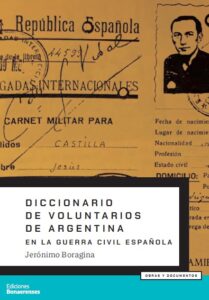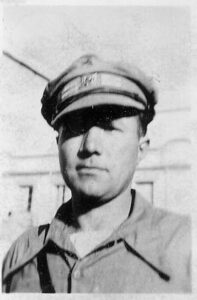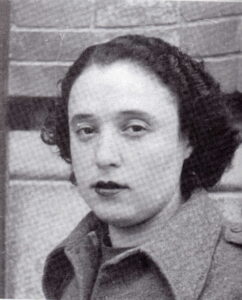Biographical Dictionary of Argentine Volunteers in New Edition
 The Diccionario biográfico de los voluntarios de Argentina en la Guerra Civil Española (Biographical dictionary of Argentine volunteers in the Spanish Civil War), by the historian Jerónimo Boragina, has just appeared in its first Argentine edition, following a first edition published in Spain by the Friends of the International Brigades (AABI). The author has also donated his entire archive on the Argentine volunteers and the Spanish solidarity movement in Argentina to the Archivo “Ricardo Levene,” the historical archive of the Buenos Aires province. An interview.
The Diccionario biográfico de los voluntarios de Argentina en la Guerra Civil Española (Biographical dictionary of Argentine volunteers in the Spanish Civil War), by the historian Jerónimo Boragina, has just appeared in its first Argentine edition, following a first edition published in Spain by the Friends of the International Brigades (AABI). The author has also donated his entire archive on the Argentine volunteers and the Spanish solidarity movement in Argentina to the Archivo “Ricardo Levene,” the historical archive of the Buenos Aires province. An interview.
Why this reprint? How does it differ from the edition of a couple of years ago?
There are three reasons that compelled me to this reprint. For one, this new version is enlarged and improved, incorporating corrections and additional biographical data of the volunteers. Secondly, it was important for it to be published in Argentina, because the Spanish edition was almost impossible to get here. Finally, given that the far right is advancing rapidly here, I feel this is the moment to publish these stories. Concepts such as freedom or equality that our volunteers defended with the Spanish Republic are now being distorted ideologically and politically.
This edition features a new prologue by Dora Barrancos. Who is she?
She is a sociologist, historian, and the most important scholar and pioneer in feminist studies in Argentina. She’s also the grandniece of an Argentine volunteer, Dr. Gregorio Bermann–something that I only discovered as I she writing the prologue.
What is the level of interest among the Argentine public in the Spanish Civil War? How about the younger generations?
Interest in the civil war in our country is constant, although reaching the younger generations has always been difficult. These stories of volunteers are not only associated with adventure but also with values of equality, which political and social ideals that have been lost in the younger generations. We can see this in the advance of the far right and the support of the youth for these groups in Argentina. One central reason why it’s important to vindicate the lives of these men and women is to change people’s outlook on the world. What better way to do this than with a Biographical Dictionary that encompasses the their militant trajectories in quantitative and qualitative terms?
Why did you decide to donate your archive? Can you say something about the institution to which you donated it? What do you expect to be done with your materials? Are there funds for it?
My archive represents twenty years’ worth of collecting materials of all kinds on the more than 1,000 Argentine volunteers, including paper documents, original photos, digitized photos, filmed interviews, etc., which are in dire need of preservation. On the other hand, I have always had the aspiration to share my materials with other researchers. Third, family members and new generations must have access to this information and materials as well. The only way is to assure that they do is to create the space and place for it. The Levene Archive is the state archive of the Province of Buenos Aires. Now that all the original paper and digital documents have deposited, we are working on an exhibit about the Argentine volunteers in Spain for next year.
For those of us who are not familiar with the current situation in Argentina, how would you describe the state of the archives that hold the legacy of the Argentine antifascist volunteers in the Spanish war?
In general terms, there has been little maintenance and investment. Still, despite the economic crisis, the government of the province of Buenos Aires has been investing in heritage preservation efforts. I received offers for my archive from three different countries, but I believe that the documentary collection should stay in Argentina, where these stories belong. The Levene Archive is the only institution that will keep the entire legacy of the volunteers in Argentina. All of us, researchers and family members alike, are hopeful for the future.















